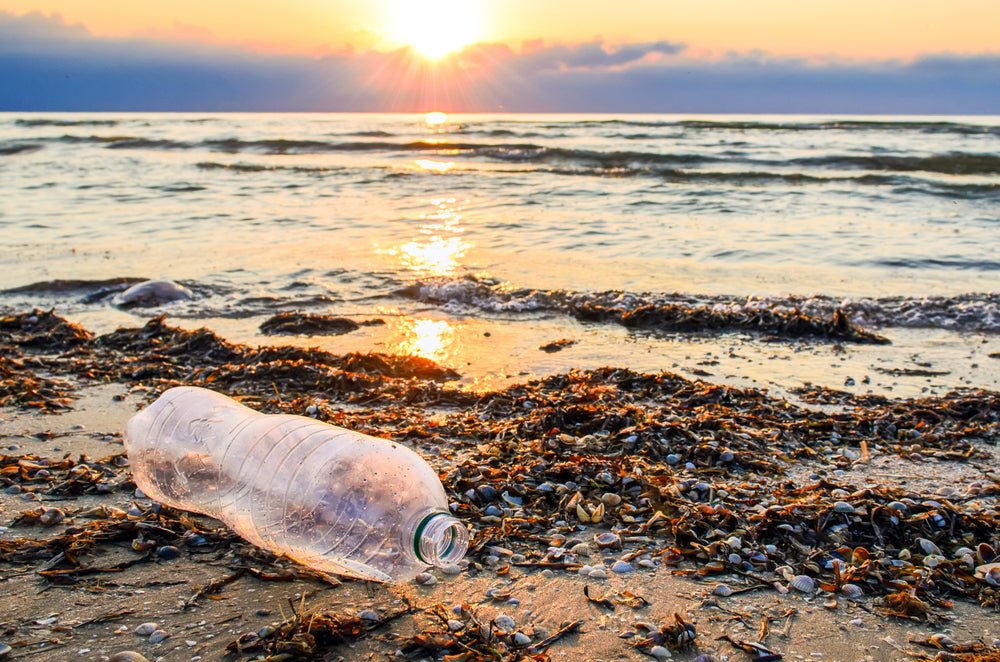
The Facts about Plastic Waste: What You Need to Know
Plastic waste is a growing environmental crisis that has devastating effects on our oceans and the planet. With millions of tonnes of plastic ending up in our oceans every year, it's crucial to understand the impact of this pollution and take actionable steps to reduce it. At Wilfred Eco, we are committed to offering sustainable alternatives, such as our eco-friendly glass water bottles, and reusable silicone straws to help combat this pressing issue.
The Plastic Waste Problem
Every year, approximately 8 million metric tonnes of plastic waste enter our oceans. This pollution is not just an eyesore; it poses serious threats to marine life, ecosystems, and human health. Plastics take hundreds to thousands of years to decompose, breaking down into microplastics that are ingested by marine animals. These tiny plastic particles accumulate in the food chain, ultimately affecting humans who consume seafood.
Impact on Marine Life
Marine animals, from the smallest plankton to the largest whales, are impacted by plastic pollution. Sea turtles can mistake plastic bags for jellyfish, their primary food source, leading to serious digestive issues and sometimes death. Birds, fish, and marine mammals get entangled in plastic debris, leading to injuries, suffocation, and drowning.
The ingestion of plastics also poses severe health risks. Chemicals used in the production of plastics, such as BPA and phthalates, can leach into the water and be absorbed by marine organisms. These toxic substances can disrupt endocrine systems, impair reproduction, and increase mortality rates among marine species.
Environmental Impact
Plastic pollution is not limited to the oceans; it affects land ecosystems as well. Plastics in landfills and littered environments can leach harmful chemicals into the soil and water sources, affecting terrestrial wildlife and plants. The production and disposal of plastics also contribute significantly to greenhouse gas emissions, exacerbating climate change.
Human Health Concerns
Humans are not immune to the consequences of plastic pollution. Microplastics have been found in drinking water, seafood, and even the air we breathe. The ingestion and inhalation of these particles pose potential health risks, including inflammation, cancer, and reproductive issues. Additionally, the chemicals in plastics can disrupt human hormones and have been linked to various health problems.
Taking Action with Wilfred Eco
At Wilfred Eco, we believe that every small action counts in the fight against plastic pollution. By choosing sustainable alternatives, we can reduce our plastic footprint and protect our planet for future generations. Our glass water bottles are a perfect example of how you can make a positive impact.
Glass is a sustainable, recyclable, and non-toxic material that doesn't leach harmful chemicals. By switching to Wilfred Eco glass water bottles, you can enjoy clean, safe drinking water without contributing to plastic waste. Our bottles are designed to be durable and reusable, making them an eco-friendly choice for your hydration needs.
Join the Movement
Reducing plastic waste requires collective effort and conscious choices. Here are some steps you can take to make a difference:
- Use Reusable Products: Switch to reusable bags, bottles, and containers to minimise single-use plastic consumption.
- Recycle Properly: Ensure that you recycle plastics correctly and support local recycling programs.
- Support Legislation: Advocate for policies that reduce plastic production and promote sustainable alternatives.
- Educate Others: Spread awareness about the plastic waste problem and encourage others to take action.
The plastic waste crisis is a significant environmental challenge, but together, we can make a difference. By choosing sustainable alternatives like Wilfred Eco glass water bottles and reusable silicone straws, you contribute to a cleaner, healthier planet.
Let's work together to protect our oceans, our environment, and our future.


